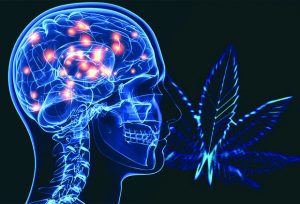 Parkinson’s disease is a devastating neurodegenerative condition and the second most common type of deterioration of the brain and nervous system worldwide.
Parkinson’s disease is a devastating neurodegenerative condition and the second most common type of deterioration of the brain and nervous system worldwide.
Typically an individual with Parkinson’s is unaware of their illness until the progressive cell death has already led to impairment and significant symptoms. The signs of Parkinson’s are hand tremors, muscle stiffness, memory loss, confusion, uncontrollable twitching or shaking, slowed movement, slouching and postural changes, changes in facial expressions, and changes in handwriting.
Parkinson’s is a complex disease that progresses over the years, and to date, has no cure. It is a neurodegenerative disease that wreaks havoc on the brain, which in turn interferes with the body’s fine motor skills. The brain’s neurons (nerve cells) are what create dopamine, and the deterioration of this process is the cause of Parkinson’s disease.
In Parkinson’s patients, the dopamine chemical production is slowed down, and over time it can be completely diminished. Some of the first symptoms of early Parkinson’s’ disease are impaired sense of smell, constipation and sleep disorders. These early signs are found in the medulla and the enteric region of the brain. Some patients will have diminished voices, develop rigid muscles and show little to no expression on their faces within the middle stages of the disease.
As the disease progresses, it eventually reaches the substantia nigra region of the brain, which controls the bodies movements. Once this stage is reached, patients have a difficult time controlling their bodily functions, and they develop tremors and have jarring irrepressible movements.
Medical Marijuana (MM)
Recreational Marijuana is legal in a few states, but for the most part, it is very different than the medical version. Firstly, recreational use cannabis is grown with very high levels of THC (tetrahydrocannabinol), which is the mind-altering, “high” component of marijuana. The other element of marijuana is CBD (cannabinoids), which has many health benefits and doesn’t have the psychoactive effect of THC. And secondly, recreational marijuana is not regulated; therefore, users are rarely certain of the actual amounts of THC or CBD they ingest or inhale.
Our brain and nerve cells have cannabinoid receptors, so our bodies naturally react to CBD and THC by merging directly with our cells. Our natural endocannabinoid system works synergistically with both CBD and THC, creating a multitude of beneficial reactions in the body, including unique healing abilities.
How Medical Marijuana Benefits Parkinson’s Patients
Within our endocannabinoid system, CB1 and CB2 receptors are embedded within the brain and peripheral immune system. Studies show that the neuroprotective properties of MM have positive effects on both non-motor and motor functions in patients with Parkinson’s disease. Because medical marijuana is rich in antioxidants and anti-inflammatory properties, it also staves off growing symptoms related to the disease like psychosis, speech, writing, walking and many other degenerative factors.
Florida Marijuana Law’s Qualifying
Conditions Include:
• Parkinson’s disease
• Cancer
• Epilepsy
• Glaucoma
• HIV
• AIDS
• Seizures
• Post-traumatic stress disorder (PTSD)
• Amyotrophic lateral sclerosis (ALS)
• Crohn’s disease
• Multiple sclerosis (MS)
• Chronic nonmalignant pain caused by a qualifying medical condition or that originates from a qualifying medical condition and persists beyond the usual course of that qualifying medical condition
• Patients can be considered for alternative disorders
Dr. Gregory Sonn
You must visit a Physician that is licensed to recommend medical marijuana. To legally purchase and consume medical marijuana in Florida, a patient must have one of the specific qualifying medical conditions regulated by the government, or have a medical condition that is deemed as appropriate. Dr. Sonn is exceptionally adept and knowledgeable in this practice, drawing from his vast experience as a Palliative Care physician and a Family Practitioner. At Iona Cannabis Clinic there is no charge for your initial visit if you don’t qualify. For the other 95% of their patient population, the physician issues a certification and enters the patient into the Medical Marijuana Use Registry or MMUR. Only patients who are registered in the Medical Marijuana Use Registry database can purchase and consume medical marijuana in Florida.
Iona Cannabis Clinic
Gregory Sonn, D.O., has been practicing Medicine since 2002; he believes that each patient is unique, requiring his or her own treatment that is different from anyone else’s medical care.
Dr. Sonn added medical marijuana therapy to his practice after seeing result-driven outcomes for patients dealing with anxiety, cancer, and other life-altering diagnoses.
If you or someone you know is suffering from pain, anxiety, or other disorders, please contact Iona Cannabis Clinic at (239) 689-6819, or visit https://www.ionacannabisclinic.com.










